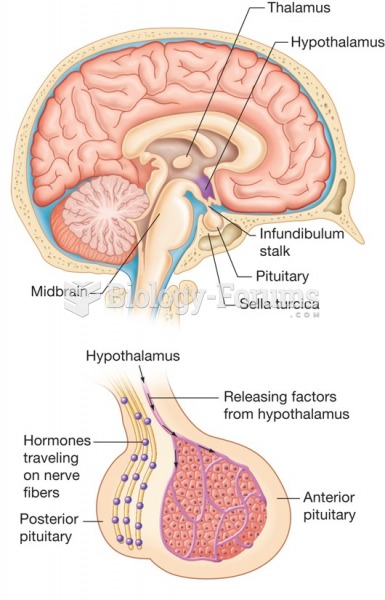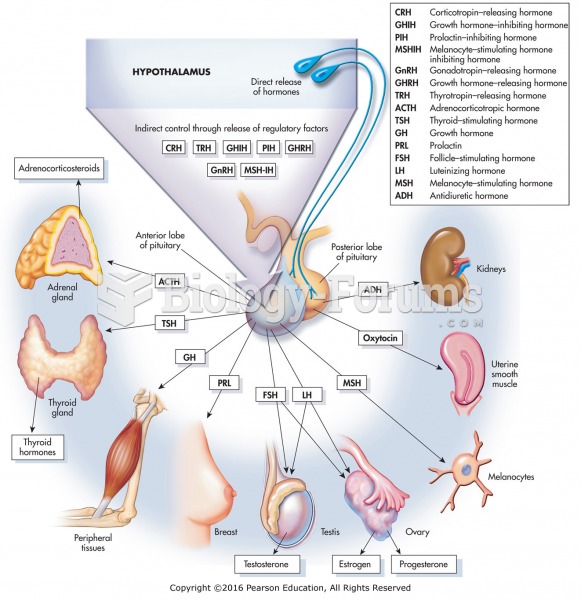|
|
|
Did you know?
Cyanide works by making the human body unable to use oxygen.
Did you know?
The human body produces and destroys 15 million blood cells every second.
Did you know?
There are more nerve cells in one human brain than there are stars in the Milky Way.
Did you know?
A recent study has found that following a diet rich in berries may slow down the aging process of the brain. This diet apparently helps to keep dopamine levels much higher than are seen in normal individuals who do not eat berries as a regular part of their diet as they enter their later years.
Did you know?
Adults are resistant to the bacterium that causes Botulism. These bacteria thrive in honey – therefore, honey should never be given to infants since their immune systems are not yet resistant.







